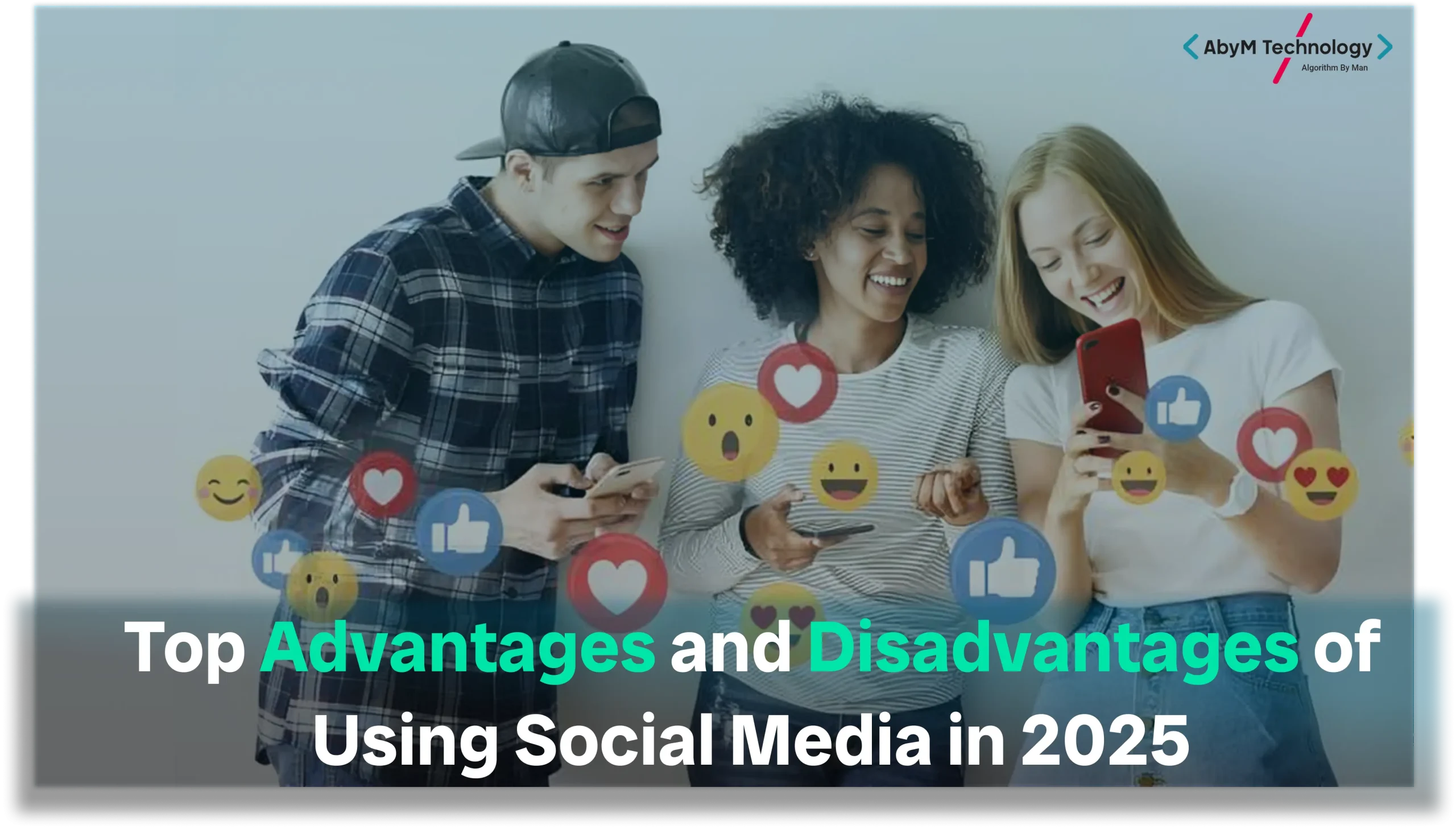Top Advantages and Disadvantages of Using Social Media in 2025
blog » Top Advantages and Disadvantages of Using Social Media in 2025

In 2025, social media continues to evolve, playing a pivotal role in how we connect, communicate, and consume information. From personal use to business marketing, social media platforms have woven themselves into the fabric of our daily lives. But like any tool, it comes with both benefits and drawbacks. In this blog, we’ll dive into the top advantages and disadvantages of using social media in 2025. Whether you’re an individual looking to stay connected or a business leveraging social platforms for growth, understanding the impact of social media is crucial.
Table of Contents
ToggleAdvantages of Using Social Media in 2025
1. Enhanced Connectivity and Networking:
Social media is revolutionizing how we stay connected. Whether it’s with family, friends, or professional networks, platforms like Facebook, LinkedIn, and Twitter have made staying in touch easier than ever. In 2025, innovations in AI and augmented reality are further enhancing how we communicate, providing more immersive ways to interact across borders and time zones.
2. Marketing and Business Growth:
For businesses, social media has proven to be an invaluable tool. Platforms like Instagram, TikTok, and Twitter allow companies to reach vast audiences with minimal cost. With precise targeting options, businesses can now market directly to their desired audience, resulting in higher conversion rates. Additionally, social media platforms allow businesses to engage with customers in real-time, fostering brand loyalty and building trust.
3. Instant News and Information:
In today’s fast-paced world, staying updated with current events is essential. Social media allows for the instant dissemination of news, making it easier for users to stay informed about global and local developments. Whether it’s breaking news, trending topics, or niche industries, social media platforms act as real-time news outlets that provide information in a digestible format.
4. Learning and Education Opportunities:
Social media has become a powerful tool for learning. Platforms like YouTube, LinkedIn Learning, and Twitter provide access to tutorials, webinars, and informative content from experts worldwide. Whether you’re looking to learn a new skill, stay updated in your field, or simply explore your interests, social media can be a valuable resource for educational purposes.

